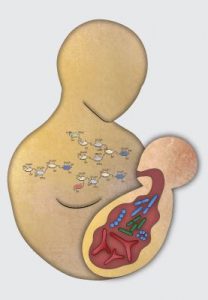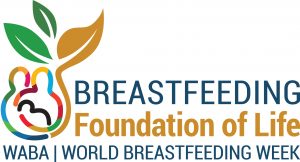 By: Sofia Sepulveda
By: Sofia Sepulveda
A recent study by the Department of Pediatrics and Child Health has found that breastfeeding has a major impact on the kind of gut bacteria that a baby develops. Babies that were breastfed in this study showed to have more beneficial gut bacteria that decreases risk of obesity in their future.
Breast milk plays a critical role in the present and future health of an individual. Breast milk ” contains, oligosaccharides which are complex sugars that feed specific gut bacteria.” It specifically fed the good bacteria in the gut that has a positive effect on how fat is stored and burned. These oligosaccharides are not present in infant formula. This may contribute to increased weight and risk of obesity for formula fed babies.
This particular study assessed over 1,000 infants during their first year of life. Stool samples were taken during month 3 and month 12 and were used to test for gut bacteria diversity. Weight differences became apparent around the 3 month mark, as the babies receiving formula were typically overweight or at risk. Only 19 percent of the babies who were breastfed were overweight or at risk compared to 33 percent of the formula fed babies.
The research emphasizes that breastmilk has “many important bioactive components that influence appetite and weight gain, including growth factors and hormones, which are not present in infant formulas.” This weight difference is most likely due to the nutrients contained in breast milk that are not found in formula.
Microbes have a very special role in the way that we digest food. Individuals accumulate these microbes in many different ways and may be affected by, “the type of delivery, whether the baby or mother gets antibiotics, and what the baby is fed and when solid foods are introduced.” Not having a healthy array of microbes is associated with weight gain and increased the likelihood of obesity during infancy.
 For more information, visit “Infant formula could change gut bacteria, contribute to childhood obesity”
For more information, visit “Infant formula could change gut bacteria, contribute to childhood obesity”
To help get the word out visit World Breast Feeding Week Resource Page
You can also learn more about Women and Diabetes with our webinar below or via the “Women and Diabetes Resource Page”









